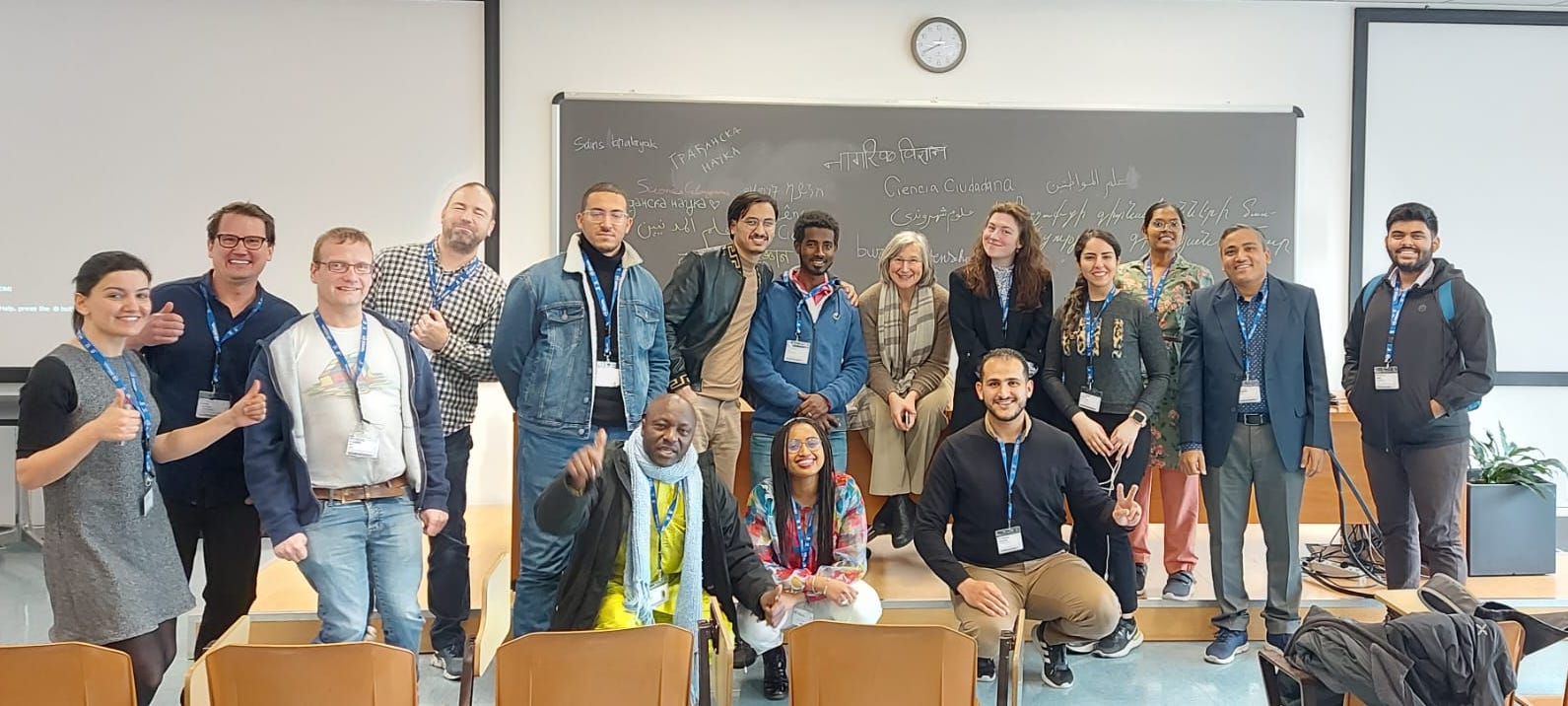
Citizen science and machine learning: a promising partnership
Simona Cerrato
March 15, 2023, 3 p.m.
Between the end of February and the beginning of March 2023, the Joint ICTP-IAEA Advanced School/Workshop on Machine Learning in Citizen Science was organised by the Abdus Salam International Centre for Theoretical Physics and hosted in the beautiful rooms overlooking the Gulf of Trieste right on the slopes of the Miramare Park where the archdukes Maximilian of Habsburg and Charlotte lived their short love story.
Born in 1964 at the very border of the Iron Curtain, ICTP was the only place in the world where Eastern and Western scientists could meet freely. A place of peace and cooperation. Today, faithful to the initial vision of the two founders Paolo Budinich and Abdus Salam, the centre is committed to international cooperation through science with the overall mission to reach the UN Sustainable Development Goals.
The Joint ICTP-IAEA Advanced School/Workshop on Machine Learning in Citizen Science was dedicated to explore the convergence of data-driven Citizen Science projects and machine learning techniques can help tackle scientific and societal challenges.
Merging citizen science and machine learning is a good match that can benefit both fields. Machine learning techniques can become a possible solution in many fields where huge amounts of data and very complex situations must be handled. All sectors can benefit from it: from astrophysics, to neuroscience, to food production and management, plant invasions, improving the quality of life of elderly people, climate change and nuclear research, water pollution and governance. These are some of the topics of the case studies and seminars presented by the speakers and participants: 35 researchers and practitioners from over 20 countries who brought their experiences and their determination to tackle and solve global problems in a 5-day event full of ideas and reflections.
The transversal and overarching theme was, of course, that of the democratisation of science. Indeed, it is crucial that people pay attention to machine learning, and in general technology, since it is part of our lives, and cannot be left to scholars or specialists alone. Citizen science can help make science more open and focused on diversity, where all knowledges, cultures, perspectives, needs, hopes, visions are taken into consideration, listened to and valued. This great potential of citizen science was visualised in a beautiful picture on the blackboard where all the participants wrote “citizen science” in their own language: the diversity of languages and alphabets reflects the many faces of citizen science and the variety of paths and approaches it offers.
As final remarks, let’s conclude with the words of one of the speakers, Koen Verbist, Programme specialist at UNESCO and co-director of the training course. According to him “citizen science is a key component of the new paradigm for open science that enables and facilitates citizen interaction”. He also stressed the need to build the necessary frameworks to ensure that AI and Machine Learning are deployed as a force for the common good, and is aligned to the Recommendation on the Ethics of Artificial Intelligence signed in November 2021 by 193 UNESCO member states.
Further readings
Cerrato S.(2022), Artificial Intelligence, citizen science and the democratisation of science, EU-Citizen.Science platform, https://eu-citizen.science/blog/2022/04/07/artificial-intelligence-citizen-science-and-democratization-science/
Franzen, M., Kloetzer, L., Ponti, M., Trojan, J., Vicens, J. (2021), Machine Learning in Citizen Science: Promises and Implications. In: , et al. The Science of Citizen Science. Springer, Cham. https://doi.org/10.1007/978-3-030-58278-4_10
Lotfian, M., Ingensand, J., Brovelli, M.A. (2021), The Partnership of Citizen Science and Machine Learning: Benefits, Risks, and Future Challenges for Engagement, Data Collection, and Data Quality, Sustainability 2021, 13, 8087. https://doi.org/10.3390/su13148087
Ponti, M., Seredko (2022), A. Human-machine-learning integration and task allocation in citizen science,. Humanit Soc Sci Commun 9, 48 (2022). https://doi.org/10.1057/s41599-022-01049-z